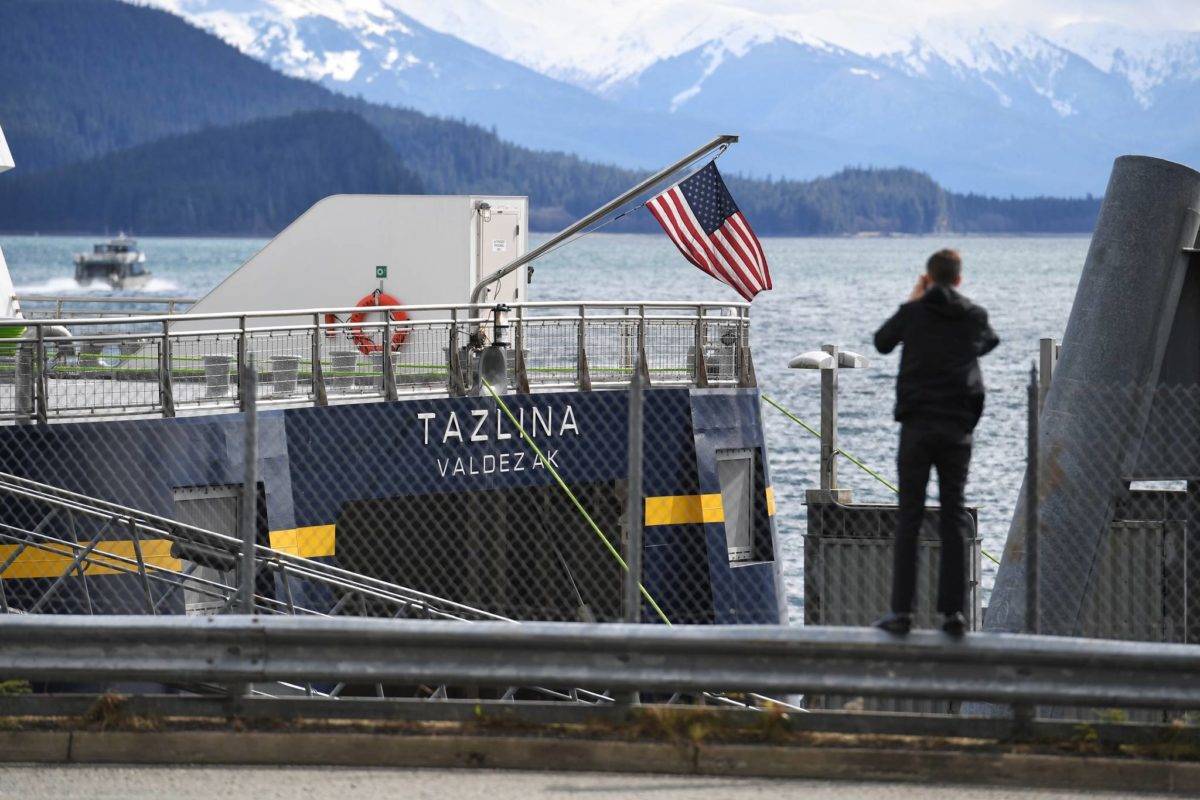Coastal Alaskans’ lives and pocketbooks are being slammed by the abysmal state of the Alaska Marine Highway.
I personally have experienced travel delays, substantial out-of-pocket expense, loss of business revenue and lack of health care access. Currently only 15 miles of the 3,100-mile Alaska Marine Highway System is operational — Ketchikan to Metlakatla. Only those two of 33 AMHS ports currently offer ferry service. It’s beyond pathetic that there’s not one ferry available to serve the 31 remaining ports and the 3085 remaining AMHS miles. And right now, AMHS terminals are open and staffed daily — even though no ferries are sailing — costing the state piles of money with zero incoming revenue. Is this beyond crazy?
Colossal failure didn’t happen overnight; the AMHS has been declining for years. Past bad decisions include building fast ferries that were expensive to operate and didn’t really work in Alaska conditions (Gov. Tony Knowles), and paying 100% of the cost of our two newest ferries to have them built in Ketchikan rather than employing the competitive bid system where the feds pay 90% with a 10% state match (Gov. Sean Parnell).
While the collapse of the AMHS is the fault of multiple administrations, the buck really stops with Dunleavy, both figuratively and literally. Dunleavy is the first governor to refuse to fund an AMHS operating budget that is in compliance with the state statute to “provide for a predictable funding base for system operation.” The statute further states the appropriation is to be “consistent from year to year and is the amount necessary, after consideration of gross revenue, to provide stable services to the public.” (See AS 19.65.050 through 060).
Recent past funding indicates “stable” and “consistent” funding for Haines/Skagway operations would require three to four weekly winter sailings. Recently, Haines/Skagway service sputtered along at one weekly ferry; and now, there is no service at all — clearly not the “continued and predictable state support” required by law.
Leaving coastal communities without ferry service for weeks or months on end not only violates state statute but is devastating to local coastal economies. Statute recognizes that “efficient and prudent management of the (AMHS) system will benefit the state’s economy and foster economic development.” Amazingly many politicians who tout economic development simply fail to understand this connection.
Additionally, these same politicians don’t seem to understand that the AMHS, as public transportation, is a valuable public service and was never meant to generate a profit or break even. Not unlike police and fire protection, essential public services cost money and deserve to be funded.
In the short term, Dunleavy must reallocate the many millions he cut from last year’s AMHS operating budget. Sufficient funding would allow the Hubbard, one of two new ready-to-sail, (but docked) Alaska Class ferries to be deployed. Funds are also required to fix our aging fleet so that we have back-up service (planned redundancy). In the longer term, we need to build one or more new ferries to replace older ones utilizing 90% federal funds with a 10% state match. Sorry, Ketchikan. Competitive bidding insures a lower overall price tag, plus a greater chance for timely delivery of seaworthy vessels.
Both the governor and Legislature must fully acknowledge the statutory determination that the AMHS is “an essential part of the state transportation system” warranting “continued and predicable state support.” This means the governor’s budget must include funds for AMHS operations at “steady and stable” levels consistent with past funding and service. It seems the Legislature is willing, but unfortunately has been — and can again be — held hostage by the governor’s veto. It’s hard to have faith the governor plans to either meaningfully address inherent AMHS problems or restore ferry service to coastal communities any time soon.
Out of utter desperation, I wonder — if the state passes another budget with insufficient AMHS operating and maintenance and repair funds: Can the state/governor be sued for violating state statute – either as a class-action lawsuit by those of us who have incurred thousands of dollars of expense due to lack of service, or by a joint action from the many coastal communities on behalf of their citizens? Desperate times just might require desperate measures.
• Nancy Berland has been riding the Alaska Marine Highway since 1973. She is semi-retired, lives in Haines and winters in Tenakee Springs.

